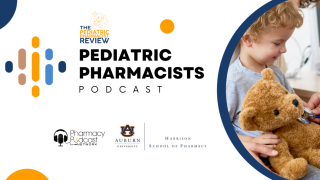Don't Hesitate, Early Monoclonal Treatment Advised for Certain COVID-19 Patients

A COVID-19 treatment that is given early after coronavirus infection cuts the risk of hospitalization and death by 60% in those patients most likely to suffer complications of the disease, according to an analysis of 232 University of Pittsburgh Medical Center (UPMC) patients.
UPMC and University of Pittsburgh School of Medicine physician-scientists published their new study’s findings in Open Forum Infectious Diseases on May 17, 2021. The study involved bamlanivimab, a monoclonal antibody produced by Eli Lilly, that is now offered only in combination with another monoclonal antibody to increase its effectiveness further.
"The fact that we found bamlanivimab to be this effective in keeping our patients with COVID-19 out of the hospital bodes very well for the future use of the currently available monoclonal therapies," commented lead author Ryan Bariola, M.D., associate professor in Pitt's Division of Infectious Diseases and director of the UPMC Community Hospital Antimicrobial Stewardship Efforts Program, in a press release.
"If given early to high-risk patients, this treatment works to prevent COVID-19-related complications."
Monoclonal antibodies (mAb) bind to the SARS-CoV-2 spike (S) protein and block viral entry into host cells, neutralizing the virus. Between November 2020 and February 2021, four mAbs provided as three treatments received Food and Drug Administration Emergency Use Authorization (EUA) to treat patients with mild to moderate COVID-19 within ten days of symptom onset.
However, real-world data are limited, and the role of mAb for patients with COVID-19 remains controversial. The use of mAb therapy is low in the United States despite widespread drug availability due to lack of robust efficacy data, operational challenges with outpatient infusions, and patient access issues, stated these researchers.
Currently, the U.S. Food & Drug Administration has granted EUAs for two monoclonal antibody treatments given through a one-time IV infusion. On May 11, 2021, the U.S. Centers for Medicare & Medicaid Service confirmed the Casirivimab and imdevimab, and Bamlanivimab and etesevimab treatments were authorized.
Federal and UPMC guidelines require the antibodies be administered within ten days of COVID-19 symptom onset and diagnosis for patients at high risk of a poor outcome, including patients of advanced age, who are obese, or those with conditions such as diabetes or lung disease.
UPMC has given monoclonal antibody infusions to 2,600 qualifying patients. The researchers analyzed data on the first 232 patients treated with bamlanivimab to learn how they've fared since their infusions.
The most substantial effect was seen in older patients.
Those aged 65 and older who received monoclonal antibodies from UPMC were nearly three times less likely to be hospitalized or die in the following month than their untreated counterparts.
The results were less pronounced in younger populations, but overall, more positive results were seen in those who received monoclonal antibody infusions than those who did not.
UPMC's data also showed a more substantial positive effect the earlier patients received the treatment after contracting the SARS-CoV-2 coronavirus and a very low rate of adverse reactions to the infusion, all of which were mild.
"If there's one key takeaway that we're seeing in our data, it's this: If you get COVID-19 and are at higher risk for severe illness, ask your doctor about monoclonal antibodies," said Graham Snyder, M.D., M.S., medical director of infection prevention and hospital epidemiology at UPMC and associate professor in Pitt's School of Medicine.
"Don't hesitate. Early treatment, while your symptoms are still mild, may be essential."
There are several limitations of this study. Such as given the observational design, there were substantial differences between bamlanivimab treated and untreated populations.
This study received no external funding, and the researchers did not disclose industry conflicts of interest.
UPMC offers monoclonal antibody infusions at 18 dedicated infusion sites in Pennsylvania, Maryland, and New York. Patients and providers can find out more about monoclonal antibody treatment by visiting UPMC/AntibodyTreatment or calling 866-804-5251.
A $23 billion health care provider and insurer, Pittsburgh-based UPMC is inventing new models of patient-centered, cost-effective, accountable care.
The University of Pittsburgh School of Medicine is one of the nation's leading academic centers for biomedical research. It integrates advanced technology with basic science across a broad range of disciplines in a continuous quest to harness the power of new knowledge and improve the human condition. For more information about the School of Medicine, see the University of Pittsburgh School of Medicine.
PrecisionVaccination publishes research-based news.
Our Trust Standards: Medical Advisory Committee
























